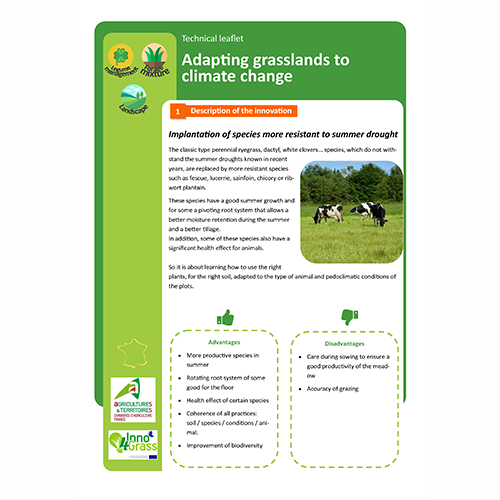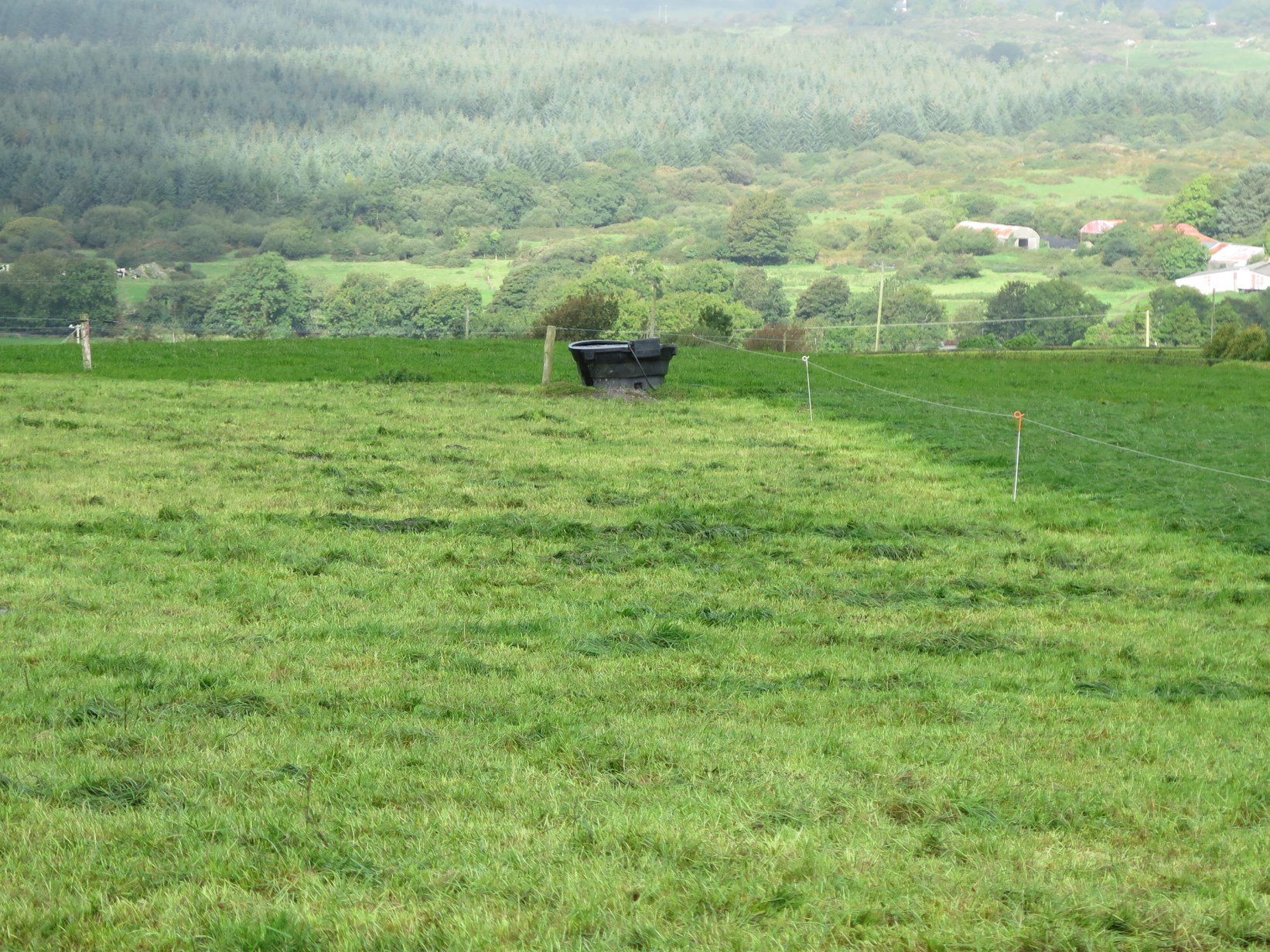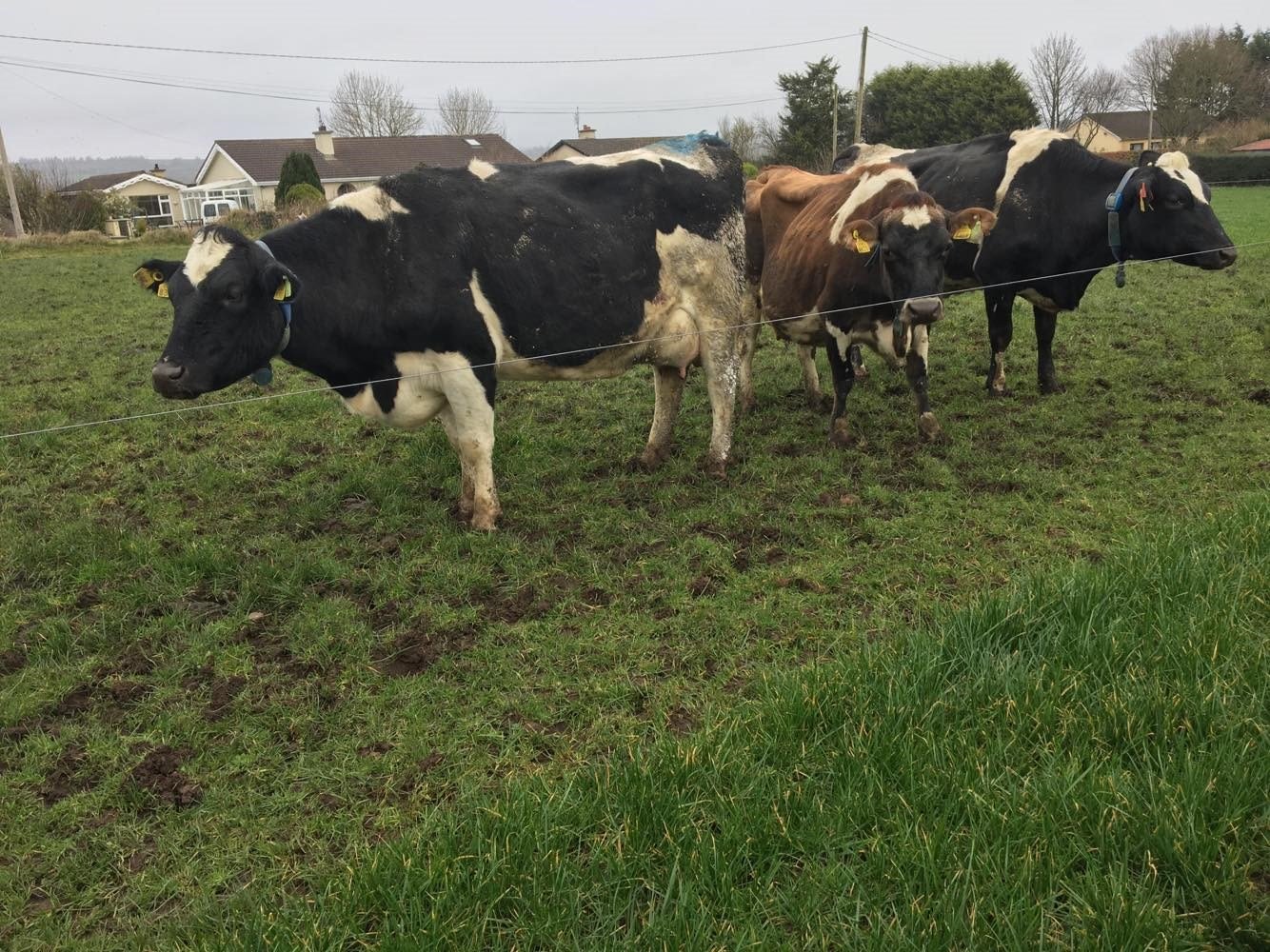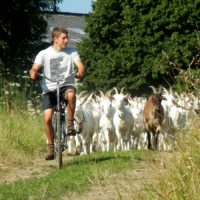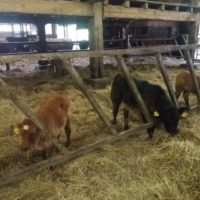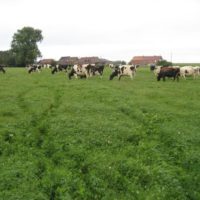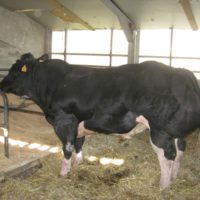Early turnout to grass in the spring
Description
Description of the innovation
Get calved cows out to grass as early as possible:
- Increased animal performance – high quality diet with minimal supplements
- Recondition swards for the year ahead – stimulate growth and improve quality
- Maximise spring grass utilisation & minimise sward decay
- Reduce workload on the farm
- Each extra day at grass = €2.70/cow/day
How?
- Maintain target Average Farm Cover (AFC) each week during Spring
- Allocate spring grass based on Spring Rotation Plan (SRP)
- Achieve target post-grazing height of 3.5cm
- maximise utilisation & recondition spring swards
- enable plants to capture sunlight energy
- Steadily increase total feed allowance from calving into breeding
Advantages
- Less cost in supplementary feed
- Increase milk solids output
- Less workload in the spring
Disadvantages
- Risk of poaching
Fertiliser Recommendations: February/ March
- Spring Nitrogen (N) application is essential to boost growth on all paddocks
- Immediately after the closed period for fertilizer and slurry application
- Apply 2,500 gals. slurry/ac. to 30% of paddocks (<650 kg DM/ha herbage mass)
- Apply 23 units urea/ ac. to remainder (Urea= 30% cheaper than alternatives/kg N)
In early March
- Apply 2,500 gals. slurry/ac. to 30% of paddocks
- Apply 40 units urea/ ac. to remainder
- 70 units N applied by April 1st
- Pay close attention to weather forecasts to avoid heavy rain and waterlogged soils within 48 hours of nutrient application to minimise losses and maximise benefits.
Summary
Walk the farm and establish grass supply
- Hit 30% area grazed in February to build grass for Rotation 2
- Increase feed allowance by 0.75 kg DM/cow/wk from calving to breeding
- High Autumn Covers (>1,200 kg DM/ha) should be grazed before Mid-march
- Avoid poaching and protect regrowth
- 70 units N applied by April 1st
More information
Additional information
| Domains of innovation | forage mixture |
|---|---|
| Main types of animal | beef cattle, dairy cattle, meat sheep |
| Country | Ireland |
| Product type | Technical leaflet |
| Language | English |
